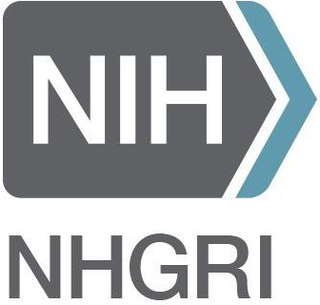
Svante Pääbo is a Swedish geneticist and Nobel Laureate who specialises in the field of evolutionary genetics. As one of the founders of paleogenetics, he has worked extensively on the Neanderthal genome. In 1997, he became founding director of the Department of Genetics at the Max Planck Institute for Evolutionary Anthropology in Leipzig, Germany. Since 1999, he has been an honorary professor at Leipzig University; he currently teaches molecular evolutionary biology at the university. He is also an adjunct professor at Okinawa Institute of Science and Technology, Japan.

Shirley Marie Tilghman, is a Canadian scholar in molecular biology and an academic administrator. She is now a professor of molecular biology and public policy and president emerita of Princeton University. In 2002, Discover magazine recognized her as one of the 50 most important women in science.

Eric Steven Lander is an American mathematician and geneticist who is a professor of biology at the Massachusetts Institute of Technology (MIT), and a professor of systems biology at Harvard Medical School. Eric Lander is founding director emeritus of the Broad Institute of MIT and Harvard. He is a 1987 MacArthur Fellow and Rhodes Scholar.

The J. Craig Venter Institute (JCVI) is a non-profit genomics research institute founded by J. Craig Venter, Ph.D. in October 2006. The institute was the result of consolidating four organizations: the Center for the Advancement of Genomics, The Institute for Genomic Research (TIGR), the Institute for Biological Energy Alternatives, and the J. Craig Venter Science Foundation Joint Technology Center. It has facilities in Rockville, Maryland and San Diego, California.

The National Human Genome Research Institute (NHGRI) is an institute of the National Institutes of Health, located in Bethesda, Maryland.

The Wellcome Sanger Institute, previously known as The Sanger Centre and Wellcome Trust Sanger Institute, is a non-profit British genomics and genetics research institute, primarily funded by the Wellcome Trust.

The Fitzpatrick Center for Interdisciplinary Engineering, Medicine and Applied Sciences—colloquially referred to as FCIEMAS —opened in August 2004 on the West campus of Duke University. Research facilities focus on the fields of photonics, bioengineering, communications, and materials science and materials engineering. The aim of the building was to emphasize interdisciplinary activities and encourage cross-departmental interactions. The building houses numerous wet bench laboratories, offices, teaching spaces, and an Irish themed café Twinnie's. FCIEMAS contains: a three-story, 10,000-square-foot (1,000 m2) atrium; 206-seat auditorium; 104,000 square feet (9,700 m2) of laboratory space; 10,000 square feet (1,000 m2) of conference space; and the Duke Immersive Virtual Environment. The construction of FCIEMAS took more than three years and cost more than $97 million.
Huntington Faxon Willard is an American geneticist. In 2014, he was named to head the Marine Biological Laboratory, and is a professor in human genetics at the University of Chicago. He stepped down from leading the lab in 2017 to return to research. Willard was elected to the National Academy of Medicine in 2016. Earlier, beginning in 2003 he was the Nanaline H. Duke Professor of Genome Sciences, the first director of the Institute for Genome Sciences and Policy, and Vice Chancellor for Genome Sciences at Duke University Medical Center in Durham, North Carolina.
The Personal Genome Project (PGP) is a long term, large cohort study which aims to sequence and publicize the complete genomes and medical records of 100,000 volunteers, in order to enable research into personal genomics and personalized medicine. It was initiated by Harvard University's George M. Church in 2005. As of November 2017, more than 10,000 volunteers had joined the project. Volunteers were accepted initially if they were permanent residents of the US and were able to submit tissue and/or genetic samples. Later the project was expanded to other countries.

The Influenza Genome Sequencing Project (IGSP), initiated in early 2004, seeks to investigate influenza evolution by providing a public data set of complete influenza genome sequences from collections of isolates representing diverse species distributions.

George McDonald Church is an American geneticist, molecular engineer, chemist, serial entrepreneur, and pioneer in personal genomics and synthetic biology. He is the Robert Winthrop Professor of Genetics at Harvard Medical School, Professor of Health Sciences and Technology at Harvard University and Massachusetts Institute of Technology, and a founding member of the Wyss Institute for Biologically Inspired Engineering at Harvard. Through his Harvard lab Church has co-founded around 50 biotech companies pushing the boundaries of innovation in the world of life sciences and making his lab as a hotbed of biotech startup activity in Boston. In 2018, the Church lab at Harvard made a record by spinning off 16 biotech companies in one year. The Church lab works on research projects that are distributed in diverse areas of modern biology like developmental biology, neurobiology, info processing, medical genetics, genomics, gene therapy, diagnostics, chemistry & bioengineering, space biology & space genetics, and ecosystem. Research and technology developments at the Church lab have impacted or made direct contributions to nearly all "next-generation sequencing (NGS)" methods and companies. In 2017, Time magazine listed him in Time 100, the list of 100 most influential people in the world. In 2022, he was featured among the most influential people in biopharma by Fierce Pharma, and was listed among the top 8 famous geneticists of all time in human history. As of January 2023, Church serves as a member of the Bulletin of the Atomic Scientists' Board of Sponsors, established by Albert Einstein.
The Duke University School of Medicine, commonly known as Duke Med, is the medical school of Duke University. It is located in the Collegiate Gothic-style West Campus of Duke University in Durham, North Carolina. The School of Medicine, along with the Duke University School of Nursing, Duke University Hospital, Duke Regional Hospital, Duke Children's Hospital, Duke Raleigh Hospital, and other affiliated hospitals, clinics, and laboratories, make up the Duke University Health System. Established in 1925 by James B. Duke, the School of Medicine has earned its reputation as an integral part of one of the world's foremost patient care and biomedical research institutions.

The Human Genome Project (HGP) was an international scientific research project with the goal of determining the base pairs that make up human DNA, and of identifying, mapping and sequencing all of the genes of the human genome from both a physical and a functional standpoint. It started in 1990 and was completed in 2003. It remains the world's largest collaborative biological project. Planning for the project started after it was adopted in 1984 by the US government, and it officially launched in 1990. It was declared complete on April 14, 2003, and included about 92% of the genome. Level "complete genome" was achieved in May 2021, with a remaining only 0.3% bases covered by potential issues. The final gapless assembly was finished in January 2022.

Steven Lloyd Salzberg is an American computational biologist and computer scientist who is a Bloomberg Distinguished Professor of Biomedical Engineering, Computer Science, and Biostatistics at Johns Hopkins University, where he is also Director of the Center for Computational Biology.

The Sanford School of Public Policy at Duke University is named after former Duke president and Governor of North Carolina Terry Sanford, who established the university's Institute for Policy Sciences and Public Affairs in 1971 as an interdisciplinary program geared toward training future leaders. When the School's current building on Duke's West Campus opened in 1994, the structure was named—and the Institute renamed—in honor of Sanford. The building was designed by Architectural Resources Cambridge, Inc. in a Modern Gothic style. The Sanford School offers bachelor's, master's, and doctoral programs in Public Policy.

Kenneth Dodge is the William McDougall Distinguished Professor of Public Policy and Professor of Psychology and Neuroscience at Duke University. He is also the founding and past director of the Duke University Center for Child and Family Policy and founder of Family Connects International.
Anne Daphne Yoder is an American biologist, researcher, and professor in the Department of Biology at Duke University in Durham, North Carolina, United States. Yoder's work includes the study, preservation, and conservation of the multifarious biodiversity found in Madagascar. One of her main research topics focuses on the diverse lemur population found on the island. Specifically, Yoder's research concentrates on assorted geographic factors that lead to varying levels of biological differences in the speciation process. Her investigations utilize genome research to further understand the complex and unique degree of speciation that occurs in lemur populations. In 2023, she was elected to the National Academy of Sciences.
Charmaine DM Royal is an American geneticist and Associate Professor at the Institute for Genome Sciences & Policy and the Department of African and African American Studies at Duke University. She studies the intersections of race, ethnicity, ancestry genetics, and health, especially as they pertain to historically marginalized and underrepresented groups in genetic and genomic research; and genomics and global health. Her major interest is in addressing root causes and implementing sustainable solutions regarding problems of race and racism in research, healthcare, and society. Royal is a Human Heredity and Health in Africa (H3Africa) Independent Expert Committee (IEC) member appointed by the National Institutes of Health (NIH) and is a 2020 Ida Cordelia Beam Distinguished Visiting Professor at the University of Iowa.












